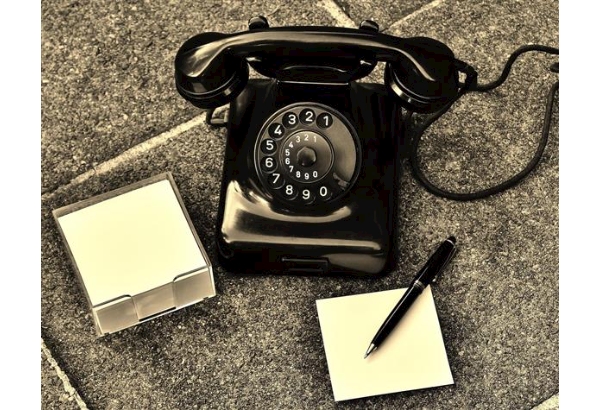
|
||
|
|
||
|
||
|
Warning Courier Fraud in Dorset |
||
|
Retired DI Margaret Ashworth sat in her favourite comfy chair in her Cotswold house, Watson purring contentedly on her lap, when the phone rang. She put down her tea, disturbing the cat as she got up to answer it. It was her friend Sarah from Dorset, and she was in a state.
"Margaret," the voice came hurriedly through the line, almost shrill, "there are fraudsters operating in Dorset at this very minute! My neighbour's mother has just been contacted by someone claiming to be from the bank. What can I do? I know how you warned people about that fake HMRC scam, but I don't have your talent for explaining these things. Can you help with courier fraud?" Margaret calmed her down and promised to help. Putting the phone down, she looked at her cat Watson and said, "Something is afoot, Watson. We have work to do."
She wanted to know more about how she could help people, and so she dusted off her old psychology books to investigate how the criminals work. Hours passed as she devoured the information, aided by copious amounts of tea and Watson purring as he walked across the books demanding attention. Working late into the night, she came across the Milgram experiment conducted in 1963, and like a furry paperweight, Watson plonked himself down on the page.
The page explained that the experiment showed that most people will follow the instructions of any person posing as an authority figure. "That's it!" she cried, throwing her glasses down and rubbing her tired eyes. "The criminals call people on the phone, catch them unawares and pretend to be from the bank or police. These tactics engage our powerful emotions of trust and override our critical thinking, especially as most of us are law-abiding citizens. No wonder people want to help and follow the instructions."
Margaret knew how persuasive fraudsters could be. She glanced at the shoddily made ornament she kept on her mantle piece to remind her of the time she was defrauded by a fake charity advert. She picked up her phone and called a colleague still in the police force.
Always pleased to hear from Margaret, Damian knew that there was no way to get her off the subject once she had the bit between her teeth.
"Yes, it is a very cruel fraud," he agreed. "People believe that they are helping us with our investigations. The fraudsters claim to be conducting a sensitive investigation and insist they need the victim's help to secure evidence." "How are they getting people to hand over money?" Margaret asked. "Victims are commonly instructed to withdraw cash from a bank or currency exchange, or to purchase high-value items such as gold or luxury goods. These items are then collected by a so-called courier, or victims are asked to send them by post. The tactics used are sophisticated and convincing, designed to exploit trust and urgency."
"We need to warn people," Margaret said firmly. Damian agreed. "Could you help spread the word in any way you can? Social media, friends and family? The more people who share this information, the more people we can save from losing their life savings. Some people could even print it off and post it through the door of someone who doesn't have access to social media." Margaret drafted the following guidance to share online:
Protect Yourself from Courier Fraud:
The police, your bank or any other trusted organisation will never contact you to withdraw cash or transfer money to help secure your account They will never ask you to purchase or send cash, foreign currency, jewellery, gold bullion, crypto or other items They will never ask a courier to collect, or ask you to post, cash or other expensive goods for safe keeping They will never ask you to play a proactive part in an investigation They will never call you to ask you to verify your personal details, banking information or PIN by phone, or offer to pick up your card or PIN by courier
If you receive a call like this: Hang up immediately. If you are told to call another number to verify the person on the phone, hang up and wait five minutes before using the same phone line; fraudsters may stay on the line after you hang up and listen in. Call your bank on 159 to get through to the fraud department and report to Action Fraud. Even if you haven't lost any money, we need your intel. Alternatively, use a different line altogether to call your bank or the police.
Satisfied that she had done all she could, Margaret reclined back in her cosy chair with a fresh cup of tea and Watson on her lap. She turned on the TV and flicked to U TV to watch the Dorset Police programme Special Ops Cops: Series 2 Episode 3 Operation Safeguard, to see a real-life case explained in detail. | ||
Reply to this message | ||
|
|





